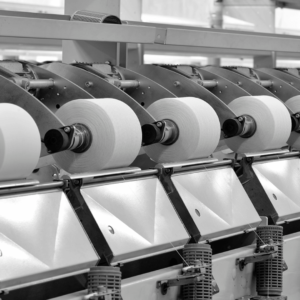agropima
TAKING Action in the Face of Environmental Megathreats
As global citizens, we must be aware of the environmental risks we are facing and take action now. While these megathreats can seem overwhelming, they also provide us with opportunities to innovate. We must shift our risk perception and recognize our power to create positive transformation in the world.
In a world facing environmental challenges on an unprecedented scale, the textile industry has a vital role to play in sustainable practices. Enter our Agropima project, a strategic alliance between Ideas Textiles and TSC, dedicated to leading the way in sustainable textile production. In this blog, we’ll explore how Agropima is not just embracing sustainability but actively championing it.
Rooted in a Rich Heritage: Peruvian Pima Cotton
Before delving into Agropima’s sustainable initiatives, it’s essential to understand the foundation on which they build: Peruvian Pima Cotton. This extraordinary cotton variety boasts a heritage dating back over 5000 years, deeply intertwined with Peru’s history. Its exceptional qualities include strength, purity, and an unsurpassed softness that has been cherished for centuries.
But what truly sets Peruvian Pima Cotton apart is how it’s cultivated. In Peru, cotton farming adheres to strict regulations:
No Chemical Defoliants or Growth Regulators: Chemicals that harm both the environment and human health are strictly prohibited in the cultivation of Peruvian Pima Cotton.
No GMO Seeds: Genetically modified organisms have no place in these cotton fields, preserving natural genetic diversity.
Hormone-Free Cultivation: The cotton grows naturally, without the use of growth hormones, fostering a more sustainable growth process.
Hand-Picked Harvest Technique: Instead of mechanized equipment, cotton is manually harvested, reducing emissions associated with energy use and fuel consumption.
Agropima: Where Sustainability Meets Action
Agropima is not just a project; it’s a force of positive change within the textile industry. Here’s how they are leading the charge towards sustainability:
New Job Opportunities and Fair Wages
Agropima’s commitment to sustainability extends to its workforce:
- Field Jobs: Through Agropima, approximately 1000 new job opportunities are opening up in cotton fields. Importantly, 30% of these workers occupy non-rotational positions.
- Spinning Processes: With a production capacity of 2.5 million kilos of yarn per year, Agropima’s cotton fields generate around 300 new jobs in the spinning processes.
- Manufacturing: Job opportunities further extend to manufacturing processes, with a manufacturing capacity of 8.5 million garments per year.
- Fair Wages: Employees at Agropima enjoy incomes that are 15% above the regular wage paid in the region, ensuring greater income equality.
Healthy Working Conditions
Agropima places the well-being of its employees at the forefront:
-
Regulated Working Hours: Working hours comply with national regulations (48 hours/week), and overtime is arranged with the employees’ consent.
-
Healthcare: All employees, both permanent and rotating, have national health insurance. Additionally, Agropima provides permanent ambulance assistance.
-
Decent Facilities: Various benefits ensure proper resting conditions, including complete sanitary facilities, decent living quarters for permanent workers, and providing bicycles to all workers.
Waste Management and Water Efficiency
Agropima’s commitment to sustainability encompasses waste management and water efficiency:
-
Partnership with Campolimpio: This organization collects empty agrochemical packaging, contributing to responsible waste disposal.
-
Composting: Agropima goes the extra mile by shredding residues and reusing 100% as biomass on their land.
-
Water Efficiency: Their irrigation system, consisting of 20 tubular wells and a 300,000-cubic-meter reservoir under construction, emphasizes water efficiency. Drip irrigation conserves up to 40% of water compared to conventional methods.
Soil Health and Carbon Capture
Agropima embraces sustainable approaches to soil health:
-
Agroforestry: Planting thousands of palm and olive trees helps increase carbon sequestration and promote soil health.
-
Crop Rotation: Allowing fields to recover during the off-season improves soil health and enhances carbon sequestration.
Solar Energy as the Future
As part of their commitment to renewable energy:
-
Electrification: Agropima aims for 100% electrification of the farm with an investment of approximately US$1 million.
-
Solar Energy: Once electrification capacity is installed and consumption is sized, they plan to transition to solar energy as a renewable source.
Agropima is not merely a project; it’s a testament to what can be achieved when sustainability meets action. In the face of environmental megathreats, they’re proving that innovation and positive transformation are not just possible but necessary. As we move forward, Agropima serves as a beacon of hope, reminding us that, together, we can create a greener and more sustainable world.
Explore More Articles Here:
Natural Cotton Color
In the ever-evolving world of sustainable fashion, a remarkable transformation...
Read MoreFibers from renewable raw wood
In the ever-evolving world of fashion and sustainability, the textile...
Read More


